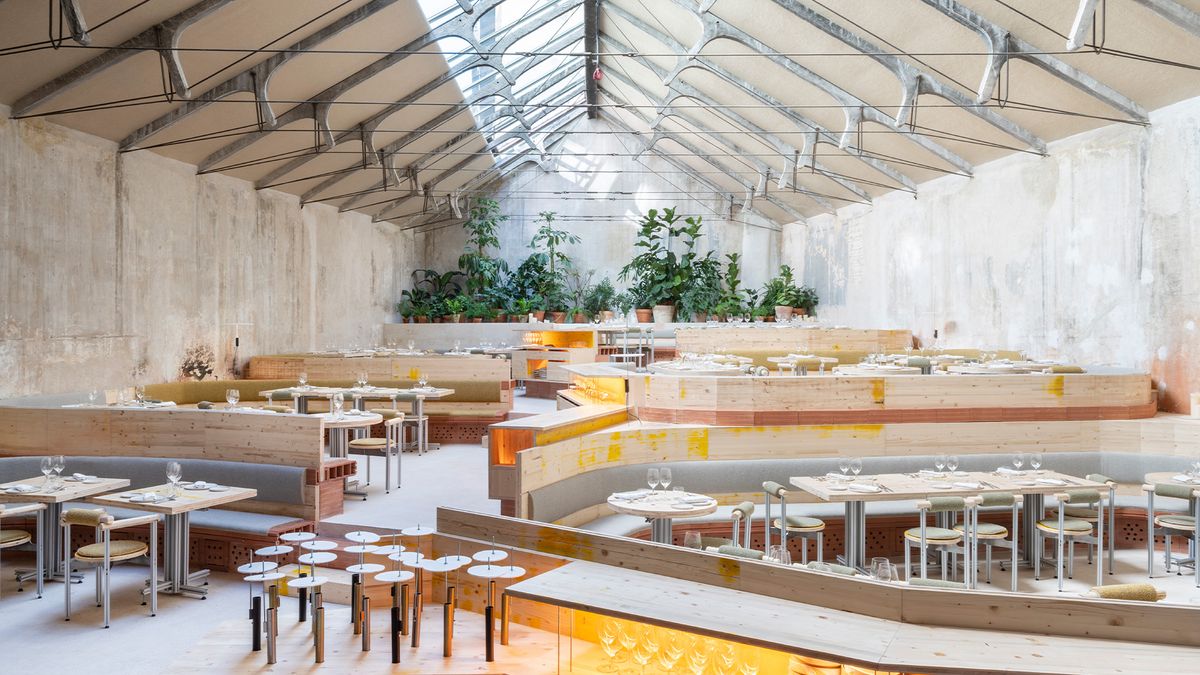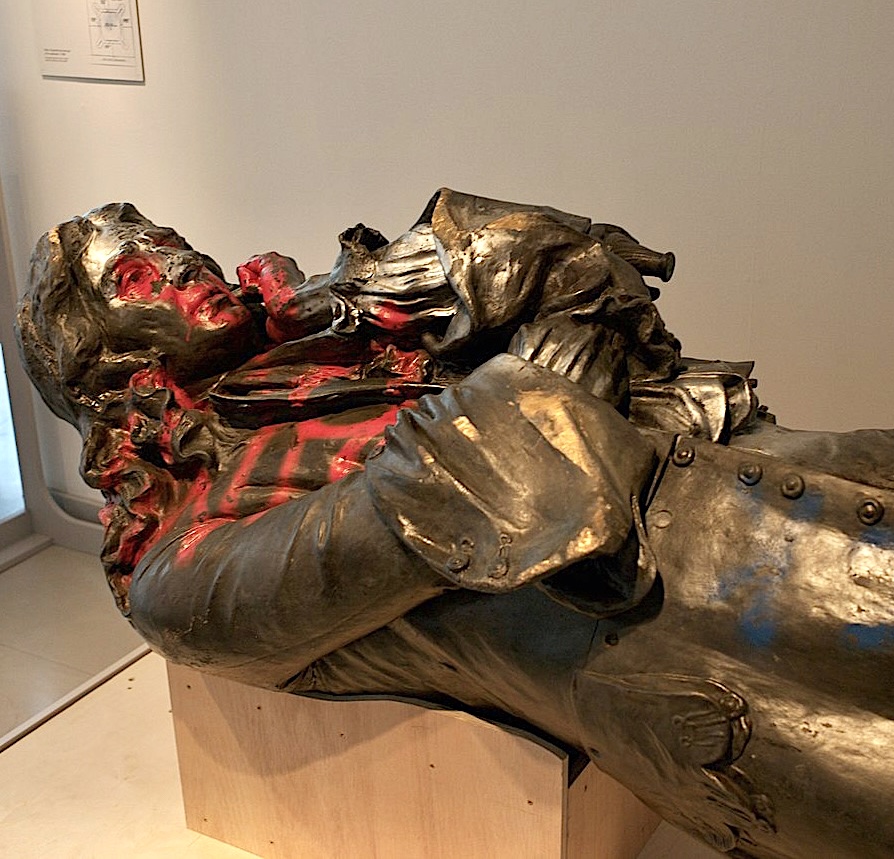De sino à sina (From Bell to Fate)
2018 - Installation (Installation)
5:20 minutes (looped)
Carla Zaccagnini
De sino à sina (From Bell to Fate) is a six-channel sound installation by Carla Zaccagnini exploring the relationship between modern Brazil and its colonial past. The sound installation is made from a recording of the bell at Capela de Nossa Senhora do Rosário dos Homens Brancos, a Baroque-style chapel that is one of the first chapels in Ouro Preto (previously Vila Rica) in the region of Minas Gerais. The work references the execution of José da Silva Xavier (1746-1792), also known as “Tiradentes”. He was a dentist and military officer, and one of the twelve people from Ouro Prieto, in Minas Gerais, who led the first attempt to gain independence from Portugal. Their revolt became known as the movement of the “Inconfidentes”. Accused of conspiring against the Portuguese Crown, Tiradentes was sentenced to the gallows and deprived of his Christian rights, which included burial and the tolling of a bell. He was dismembered instead, and rumor has it that, despite the interdiction, the bell of the Capela de Nossa Senhora do Rosário dos Homens Brancos in Ouro Prieto tolled. In a symbolic political move, that very same bell would sound years later, in 1960, during the inauguration of Brasília, the futurist capital of Brazil, turning Tiradentes, the conspirator, into a national hero. Zaccagnini was compelled by the symbolic sound of the bell, for it resisted the capital punishment of Tiradentes, and it had also uplifted the hopes of modernity in the birth of Brasilia. Additionally, a subtle projection in the bell sound are the hundreds of thousands of indigenous Indian and African slaves who were employed to undertake the physical toil of recovering the gold, an aspect of the Brazilian gold rush that differentiated it from the other prominent rushes. Yet, De sino à sina not only alludes to the evolution of the figures of the slave, the traitor, and the martyr in the formation of Brazilian history and the construction of the nation’s identity. While the story of the bell is deeply and directly connected to the Catholic faith and power, the sudden African rhythms in the work produce a new sound. The work thus explores the influences of African culture that permeated the country with the slave trade and speculates about the way they have infiltrated its white Christian counterpart as a form of resistance. The work responds with utmost sharpness to the need of creating a ritual atmosphere that is not necessarily religious, but that still generates a sense of community.
Carla Zaccagnini combines historical research with a variety of media and techniques. From drawing to installation, performance, text, video, exhibition curating, and written criticism, Zaccagnini investigates cultural exchange and social displacement, as well as the transformation of the symbolic value of images in contemporary culture. Zaccagnini views these multiple activities as mutually constitutive forms of inquiry that overlap to form a holistic, conceptually driven art practice. Often working by recontextualizing existing objects and ideas, she prompts viewers to question the limitations of language and representation, the fallibility of perception, and the construction of knowledge. Zaccagnini is part of a generation of Latin American artists that have addressed the political history of the continent and, more specifically but not exclusively, the history of Brazil. Having delved into the history of slavery, the influence of European aesthetics in Brazilian art, and its assimilation by indigenous cultures, Zaccagnini uses art as a conceptual instrument to undo the construction of history and the production of knowledge.
Colors:
Related works featuring themes of: » Brazil, » Brazilian
» see more

© » KADIST
Marcelo Cidade
2010Adição por subtração 4 (Addition by Subtraction, 2010) is an intervention into the white cube with both beautiful and intimidating results...

© » KADIST
Erika Verzutti
2015Made in cast bronze, Two Eyes Two Mouths provokes a strong sense of fleshiness as if manipulated by the hand of the artist pushing her fingers into wet clay or plaster to create gouges that represent eyes, mouths and the female reproductive organ...
Other related works, blended automatically
» see more

© » KADIST
Carla Zaccagnini
2005This series of photographs, Sobre la igualdad y las diferencias: casas gemelas (On Equality and Differences: Twin Houses) , taken in Havana in 2005, belongs to a wider group of works that the artist has been developing over many years, generally titled Bifurcaciones y encrucijadas (Forking Paths and Crossroads) ...

© » KADIST
Marcelo Cidade
2010Adição por subtração 4 (Addition by Subtraction, 2010) is an intervention into the white cube with both beautiful and intimidating results...

© » KADIST
Alexandre da Cunha
2010In Laissez-Faire (Rainbow Flag) da Cunha has turned a beach towel into both a painting and a flag...
Related works sharing similar palette
» see more

© » ART & OBJECT
10 Stunning Prehistoric Sculptures from The Met's Collection | Art & Object Skip to main content Subscribe to our free e-letter! Webform Your Email Address Role Art Collector/Enthusiast Artist Art World Professional Academic Country USA Afghanistan Albania Algeria American Samoa Andorra Angola Anguilla Antarctica Antigua & Barbuda Argentina Armenia Aruba Ascension Island Australia Austria Azerbaijan Bahamas Bahrain Bangladesh Barbados Belarus Belgium Belize Benin Bermuda Bhutan Bolivia Bosnia & Herzegovina Botswana Bouvet Island Brazil British Indian Ocean Territory British Virgin Islands Brunei Bulgaria Burkina Faso Burundi Cambodia Cameroon Canada Canary Islands Cape Verde Caribbean Netherlands Cayman Islands Central African Republic Ceuta & Melilla Chad Chile China Christmas Island Clipperton Island Cocos (Keeling) Islands Colombia Comoros Congo - Brazzaville Congo - Kinshasa Cook Islands Costa Rica Croatia Cuba Curaçao Cyprus Czechia Côte d’Ivoire Denmark Diego Garcia Djibouti Dominica Dominican Republic Ecuador Egypt El Salvador Equatorial Guinea Eritrea Estonia Eswatini Ethiopia Falkland Islands Faroe Islands Fiji Finland France French Guiana French Polynesia French Southern Territories Gabon Gambia Georgia Germany Ghana Gibraltar Greece Greenland Grenada Guadeloupe Guam Guatemala Guernsey Guinea Guinea-Bissau Guyana Haiti Heard & McDonald Islands Honduras Hong Kong SAR China Hungary Iceland India Indonesia Iran Iraq Ireland Isle of Man Israel Italy Jamaica Japan Jersey Jordan Kazakhstan Kenya Kiribati Kosovo Kuwait Kyrgyzstan Laos Latvia Lebanon Lesotho Liberia Libya Liechtenstein Lithuania Luxembourg Macao SAR China Madagascar Malawi Malaysia Maldives Mali Malta Marshall Islands Martinique Mauritania Mauritius Mayotte Mexico Micronesia Moldova Monaco Mongolia Montenegro Montserrat Morocco Mozambique Myanmar (Burma) Namibia Nauru Nepal Netherlands Netherlands Antilles New Caledonia New Zealand Nicaragua Niger Nigeria Niue Norfolk Island Northern Mariana Islands North Korea North Macedonia Norway Oman Outlying Oceania Pakistan Palau Palestinian Territories Panama Papua New Guinea Paraguay Peru Philippines Pitcairn Islands Poland Portugal Puerto Rico Qatar Romania Russia Rwanda Réunion Samoa San Marino Saudi Arabia Senegal Serbia Seychelles Sierra Leone Singapore Sint Maarten Slovakia Slovenia Solomon Islands Somalia South Africa South Georgia & South Sandwich Islands South Korea South Sudan Spain Sri Lanka St...
Other works by: » Carla Zaccagnini
» see more

© » KADIST
Carla Zaccagnini
2005This series of photographs, Sobre la igualdad y las diferencias: casas gemelas (On Equality and Differences: Twin Houses) , taken in Havana in 2005, belongs to a wider group of works that the artist has been developing over many years, generally titled Bifurcaciones y encrucijadas (Forking Paths and Crossroads) ...
Related artist(s) to: Carla Zaccagnini » Nicolás Robbio, » Rivane Neuenschwander, » São Paulo, » Alexander Apóstol, » Carolina Caycedo, » Fernando Bryce, » María Inés Rodríguez, » Gilda Mantilla, » Mario García Torres, » Mateo López
» see more

© » KADIST
Mario Garcia Torres
2010In Up All Night, Waiting for the Chelsea Hotel Magic to Spark My Creativity Mario García Torres constructs and documents a hypothetical scene, situating himself within a lineage of artists and creatives that used to congregate at the historic hotel...

© » KADIST
Carolina Caycedo
2014YUMA o la tierra de los amigos (YUMA, or the Land of Friends) by Carolina Caycedo is a large mural containing a series of satellite photographs mounted on acrylic...

© » KADIST
Mario Garcia Torres
2005Mario Garcia Torres films a game of Charades among professional actors guessing the former North Korean dictator’s favorite Hollywood films...

© » KADIST
Rivane Neuenschwander
2007Mapa-Mundi BR (postal) is a set of wooden shelves holding postcards that depict locations in Brazil named for foreign countries and cities...
Related works found in the same semantic group
» see more

© » KADIST
Joscelyn Gardner
2009Creole Portraits III alludes to the 18th century practice by slave women on Caribbean plantations of using tropical plants as natural abortifacients...

© » KADIST
Uriel Orlow
2016The series The Memory of Trees is specifically about trees, and what trees have witnessed in South Africa: for example, trees that were used as locations for slave trading, or trees that was during the anti-Apartheid struggle as a kind of identifier for a safe house for activists who were fleeing from security forces...







